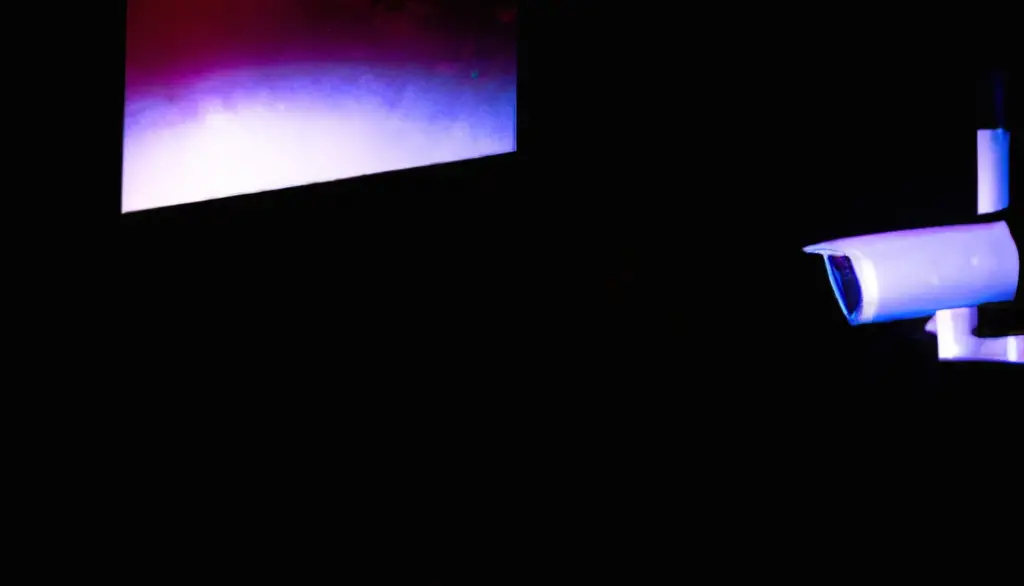Moviegoers have a right to know if there are cameras hidden inside a theatre and how they can find them.
Of course, this may be a bit concerning, especially because privacy comes into question when others may watch their activity. That sounds pretty unnerving, but cameras are in place to ensure everyone follows the rules and remains safe while sitting back and enjoying a film.
Where are these cameras located?
Hidden security cameras are typically mounted on a booth behind the audience or just atop the big viewing screen. Even then, cameras may be deployed in different areas, such as the corners of the auditorium.
Please note that these cameras aren’t meant to be utilized for eavesdropping purposes.
Why are cameras installed in movie theaters?
It may seem jarring at first, but security cameras are actually beneficial in movie theatres. For instance, they can help prevent movie attendees from secretly recording the film and also keep the area safe.
These cameras typically have night vision, making it possible to record in the dark.
Other reasons for including cameras in this setting include:
1. Preventing a viewer from recording the movie
Piracy does more harm than good. Some people in attendance may try practicing this illegal act by using a camera to record the film and uploading it at a later time. Ultimately, this causes a huge decline in box office sales for the movie studio.
That’s why governments have introduced some anti-piracy laws, including copyright infringement. If you end up watching movies from streaming sites, then workers in the production industry may lose their jobs or see a pay decrease. Not only that, but it also affects the American economy.
2. Stopping criminal acts from occurring
Studies conducted by researchers revealed that crimes significantly declined after installing security cameras. This was, of course, proven in London, where street robbery dropped by 80% after CCTV cameras were deployed.
That’s because having a camera helps to prevent potential criminals from engaging in the act. Plus, local authorities can use the footage to identify any wrongdoings carried out by perpetrators. In addition, CCTV cameras make it safer for residents and anyone present in an area due to a lower likelihood of someone committing a crime.
So, movie theatres with security cameras are actually practical, helping to keep everyone as safe as possible. Cameras are the best option for this reason, especially in a dark area. Generally speaking, these help to keep an individual away from trouble and may also help a victim.
3. Preventing anyone from sneaking in food
Some movie theatres allow you to bring in your own food. Even then, they can stop servicing a customer if the food is deemed unsafe, especially for those in attendance.
Customers may even sneak in their snacks due to the costly food prices at concessions, resulting in them saving a quick buck. Not only that, but this method may also be considered due to the unhealthy options being offered at theatres.
A large portion of a theatre’s revenue comes from selling snacks. So, this means some cinemas may prohibit customers from bringing in their food. Otherwise, cinemas reserve the right to kick people out if security camera footage catches these people in the act.
4. Monitor for inappropriate activity
Let’s face it. Young couples love to attend the movies for date night.
However, they need to be aware of certain rules while watching a film on the big screen. That includes being barred from engaging in sexual foreplay, which may carry harsh consequences if caught! Regardless, they will be recorded during their visit.
Sexual activity in theaters is strongly prohibited! So, if employees catch this behavior, then they contact local authorities, who may press misdemeanor charges. This may result in the rule-breaker facing a fine along with a jail sentence in severe (albeit unlikely) instances. So this isn’t something you will want to risk! On the other hand, kissing has a less severe punishment. Rather than facing charges, you will most likely be asked to leave with embarrassment.
5. Can help prevent revenue loss
Sales from tickets and concessions generate most of the revenue. Typically, these sales occur in many locations of a theatre, which also increases theft risk, resulting in revenue loss.
Installing security cameras in these areas ensures that any suspicious activity will be recorded while a transaction is in progress to help prevent fraud or theft. Plus, these security cameras can provide substantial evidence during an investigation, revealing the location, time, and people that played a role in the event.
6. Supports daily business operations
Collecting data from cameras recording location sales, such as concession stands, can help promote efficiency, growth, operations, and the workforce in a theatre.
The idea here is to evaluate traffic throughout the day, long-term visitor numbers and patterns, and purchases. That way, managers can effectively set up an employee’s schedule and tasks.
What types of cameras do movie theatres use?
Theatres rely on night vision infrared Pan-Tilt-Zoom (PTZ) cameras to generate sharp and detailed images in a dark area. These look similar to a small robot mounted on a ceiling or wall.
PTZ cameras are especially advantageous because they are capable of focusing on a group of people simultaneously. However, only theatre security or employees can access and view these recordings, which will ultimately reveal any suspicious activity along with the viewer’s face.
If the camera produces unclear footage, then an employee repositions and zooms in to provide a sharp and close-range image. Also, these cameras can focus on specific areas without distortion.
Security will often hold the recordings for 90 days, after which they end up removing them. On a more positive note, each recording is never posted on the internet, so viewers don’t need to worry about online exposure!
Can movie theatres legally install cameras?
From a legal perspective, since movie theatres are privately owned, public business establishments, they can record the audience to help prevent criminal acts from arising. This is the same concept as a business installing cameras to monitor people.
With that in mind, you can feel assured about your safety while watching a movie. So you should always assume you’re being monitored. However, sneaking in snacks or performing prohibited activities will likely become an issue.
How can you tell if a theater has cameras?
Perhaps you’re wondering if there’s a quick and easy way to determine if there are cameras present.
You may be able to do this through your smartphone’s camera and a magnetometer sensor. If you hold your phone up in a dark area and the lens picks up light, then that’s a strong indicator that the theatre installed infrared cameras.
Conclusion
As you know, security cameras provide some excellent benefits for the establishment and customers.
These aren’t installed just to prevent piracy but also to keep customers safe while enforcing certain rules. After all, theaters don’t want to lose out on revenue, so they will often monitor point-of-sales locations and try to prevent viewers from sneaking in food as well.
Even then, these help keep the business running smoothly on a daily basis.
Overall, these are some of the more important reasons for security camera installations in a movie theatre. You can even use your smartphone camera lens to detect an infrared camera’s presence in the auditorium.
FAQs
Are all movie theatres equipped with cameras?
Not all movie theatres are equipped with cameras. It depends on the theatre’s policy, local laws, and other factors. However, it’s reasonable to assume that many modern theatres are monitored for the reasons outlined in this article.
Can I request footage from security cameras in a movie theatre?
Generally, security camera footage in movie theatres is only accessible to the security team or designated employees for legal and privacy reasons. In special circumstances, such as a police investigation, authorities may be granted access.
What happens to the footage after a certain period?
Security footage from theatres is typically stored for a limited period, often 90 days, before being deleted. Importantly, it’s not posted online, protecting the privacy of the movie-goers.

